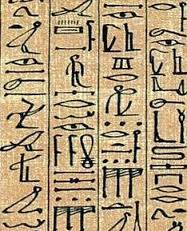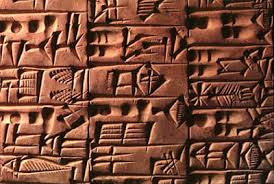


Does an Alphabet Build a Different Brain?
Influential twentieth-century scholars have argued that the alphabet represents the apex of all writing and that, consequently, alphabet readers “think differently”
Claim 1: The Alphabet is more efficient than all other writing systems. Efficiency is the capacity of a writing system to be read rapidly with fluent comprehension. The alphabet achieves its high level of efficiency through its economy of characters (a mere twenty-six letters in many alphabets, compared with 900 cuneiform characters and thousands of hieroglyphs. The reduced number of symbols reduces the time and attention needed for rapid recognition; and thus fewer perceptual and memory resources are needed.
Claim 2: The Alphabet stimulates novel thought best. The classicist Eric Havelock and the psychologist David Olson assert the thought-provoking hypothesis that the efficiency of the Greek alphabet led to an unparalleled transformation in the actual content of thought. By liberating people from the effort required by an oral tradition, the alphabet’s efficiency “stimulated the thinking of novel thought.”
Claim 3: The Alphabet facilitates reading acquisition through enhanced awareness of speech. The Greek alphabet did differ dramatically from previous writing systems in its incorporation of highly sophisticated linguistics insights into human speech. The ancient Greeks discovered that the entire speech stream of oral language could be analyzed and systematically segments into individual sounds. .This is not an obvious perception for anyone, in any era. It is especially fitting that the Greeks, the most vocal proponents of oral culture, discovered for themselves the underlying structure and components of speech.
Maryanne Wolf: Proust and the Squid